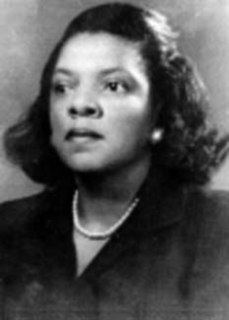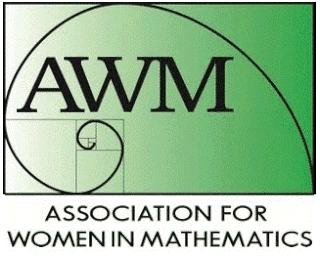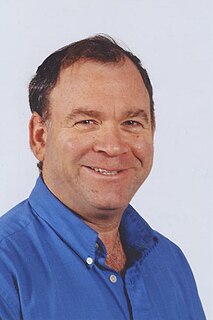Related Research Articles

The International Mathematical Union (IMU) is an international non-governmental organization devoted to international cooperation in the field of mathematics across the world. It is a member of the International Science Council (ISC) and supports the International Congress of Mathematicians. Its members are national mathematics organizations from more than 80 countries.

The Institute of Mathematics and its Applications (IMA) is the UK's chartered professional body for mathematicians and one of the UK's learned societies for mathematics.

Baroness Ingrid Daubechies is a Belgian physicist and mathematician. She is best known for her work with wavelets in image compression.
Neal I. Koblitz is a Professor of Mathematics at the University of Washington. He is also an adjunct professor with the Centre for Applied Cryptographic Research at the University of Waterloo. He is the creator of hyperelliptic curve cryptography and the independent co-creator of elliptic curve cryptography.

The Instituto Nacional de Matemática Pura e Aplicada is widely considered to be the foremost research and educational institution of Brazil in the area of mathematics. It is located in the city of Rio de Janeiro, and was formerly known simply as Instituto de Matemática Pura e Aplicada, hence its official abbreviation.
Evelyn Boyd Granville was the second African-American woman to receive a Ph.D. in mathematics from an American University; she earned it in 1949 from Yale University. She graduated from Smith College in 1945. She performed pioneering work in the field of computing.

Mayjor Lee Browne was a mathematics educator. She was one of the first African-American women to receive a Ph.D in mathematics.

The Association for Women in Mathematics (AWM) is a professional society whose mission is to encourage women and girls to study and to have active careers in the mathematical sciences, and to promote equal opportunity for and the equal treatment of women and girls in the mathematical sciences. The AWM was founded in 1971 and incorporated in the state of Massachusetts. AWM has approximately 5200 members, including over 250 institutional members, such as colleges, universities, institutes, and mathematical societies. It offers numerous programs and workshops to mentor women and girls in the mathematical sciences. Much of AWM's work is supported through federal grants.

Carlos Castillo-Chavez is the Emeritus and Founding Director of the Mathematical and Computational Modeling Sciences Center at Arizona State University. He is a Regents Professor and Joaquín Bustoz Jr. Professor of Mathematical Biology at Arizona State University. Castillo-Chavez was the Executive Director of the Mathematical and Theoretical Biology Institute (MTBI) and the Institute for Strengthening the Understanding of Mathematics and Science. He also worked as rector of Yachay Tech University in Ecuador during 2016 to 2018. For 2019, Castillo-Chavez is Provost Visiting Professor in the Applied Mathematics Division and Data Science Initiative at Brown University.

Alexander Lubotzky is an Israeli mathematician and former politician who is currently a professor at the Hebrew University of Jerusalem and an adjunct professor at Yale University. He served as a member of the Knesset for The Third Way party between 1996 and 1999. In 2018 he won the Israel Prize for his accomplishments in maths and computer science.

Miriam Cohen is an Israeli mathematician and a professor in the Department of Mathematics at Ben-Gurion University of the Negev whose main areas of research are Hopf algebras, quantum groups and Noncommutative rings.
Lê Thị Thanh Nhàn is a Vietnamese mathematician who is a professor of mathematics and vice rector for the College of Science at Thái Nguyên University. Her research concerns commutative algebra and algebraic geometry.
The Centre International de Mathématiques Pures et Appliquées is category 2 UNESCO centre based in Nice with the mission to promote research in mathematics in developing countries. CIMPA is an association under the 1901 French law on associations and is funded by government agencies in France, Norway, Spain, and Switzerland.
Camille McKayle is an Afro-Jamaican-American mathematician and is the current Provost of the University of the Virgin Islands. She holds a PhD in mathematics from Lehigh University and taught undergraduates at Lafayette College and UVI from 1993 to 2008. In 2008, she became Interim Dean of Science and Mathematics at UVI and four years later was made interim provost. She became the permanent Provost in 2014. McKayle's research focuses on expanding participation of STEM curricula to minority populations.
Carla Denise Cotwright-Williams is an American mathematician who works as a Senior Data Scientist for the US government.
Verdiana Grace Masanja is a Tanzanian mathematician specializing in fluid dynamics. She is the first Tanzanian woman to earn a doctorate in mathematics. Beyond mathematics, she has also published on the education and participation of women in science.
Carrie Diaz Eaton is an Associate Professor of Digital and Computational Studies at Bates College, a co-founder of QUBES, and project director for Math Mamas. Diaz Eaton is a 1st generation Latina of Peruvian descent and is also known for her work in social justice in STEM higher education.
Overtoun Jenda, born in an urban area of the Northern part of Malawi, is a mathematician and recipient of a 2020 Presidential Award for Excellence in Science, Mathematics, and Engineering Mentoring. He is a Professor of Mathematics and Assistant Provost for Special Projects and Initiatives at Auburn University. In 2011, Jenda founded the Southern Africa Mathematical Sciences Association Masuma project for research collaboration.
References
- 1 2 "Southern Africa Mathematical Sciences Association" . Retrieved 7 August 2018.
- 1 2 "Joint SAMS-AMS-SAMSA Mathematics Conference" . Retrieved 7 August 2018.
- ↑ "The SAMSA-Masamu Program" . Retrieved 7 August 2018.
- 1 2 3 "Growing a Generation of Mathematicians in Africa" . Retrieved 7 August 2018.
- ↑ "First Year of Kovalevskaia Grants in Southern Africa" (PDF). Retrieved 8 August 2018.
- ↑ "Kovalevskaia Research Grants for Female Mathematicians in Southern Africa Region" (PDF). Retrieved 8 August 2018.
- ↑ "Winners of Kovalevskaia Fund Prizes and Scholarships Since 2005" (PDF). Retrieved 8 August 2018.